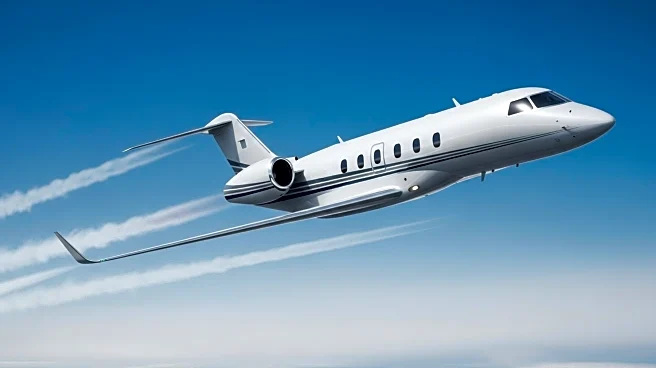What's Happening?
Bombardier has announced an increase in the maximum operating speed of its Global 8000 aircraft to Mach 0.95, setting a new benchmark for speed in civil aviation. The decision follows successful tests
that demonstrated the aircraft's handling capabilities beyond its previous limit of Mach 0.94. Bombardier's president and CEO, Eric Martel, stated that this advancement will enhance efficiency and comfort for customers seeking faster global travel solutions. The Global 8000 is now the fastest civil aircraft since the Concorde, capable of ultra-high-speed cruise at Mach 0.92.
Why It's Important?
This development is significant for the business aviation sector, as it offers a competitive edge in speed and efficiency. The ability to travel faster can reduce flight times, potentially increasing productivity for business travelers and offering airlines a unique selling point. The Global 8000's enhanced speed capabilities may influence market dynamics, prompting competitors to innovate and improve their offerings. Additionally, the aircraft's performance could impact regulatory standards and safety protocols in high-speed aviation.
What's Next?
Bombardier plans to continue its journey with Transport Canada certification and aims to have the Global 8000 enter service by the end of the year. The company will likely focus on marketing the aircraft's speed advantages to attract high-profile clients and expand its market share. As the aviation industry adapts to this new benchmark, other manufacturers may accelerate their own research and development efforts to compete with Bombardier's advancements.
Beyond the Headlines
The increase in speed for the Global 8000 raises questions about the environmental impact of faster aircraft. While speed can enhance efficiency, it may also lead to increased fuel consumption and emissions. The aviation industry will need to balance these factors with sustainability goals, potentially driving innovation in fuel efficiency and alternative propulsion technologies.









